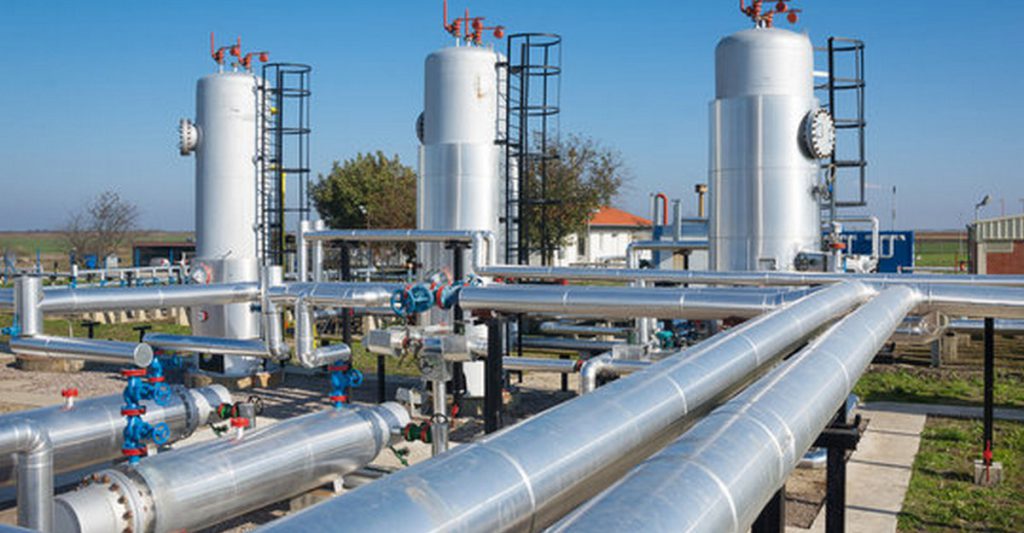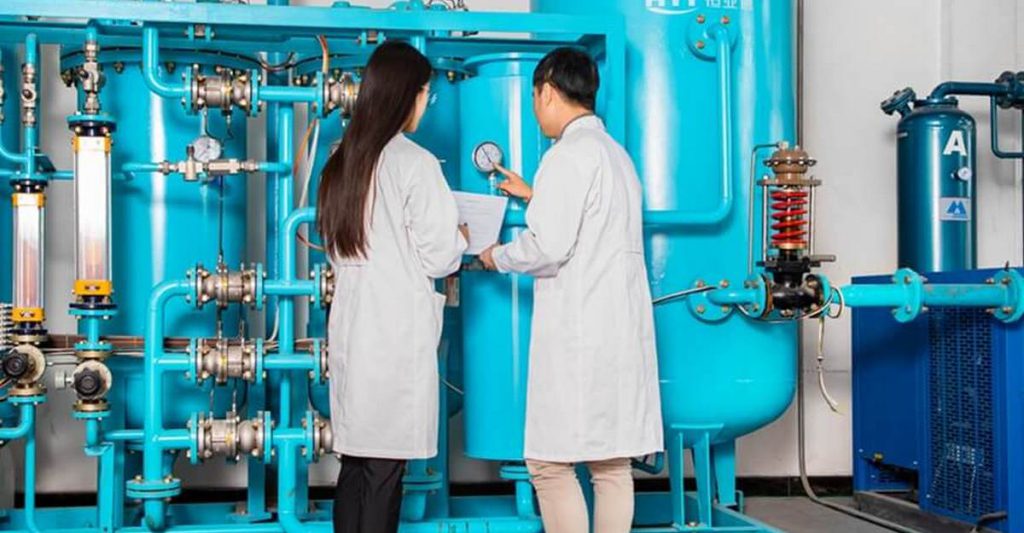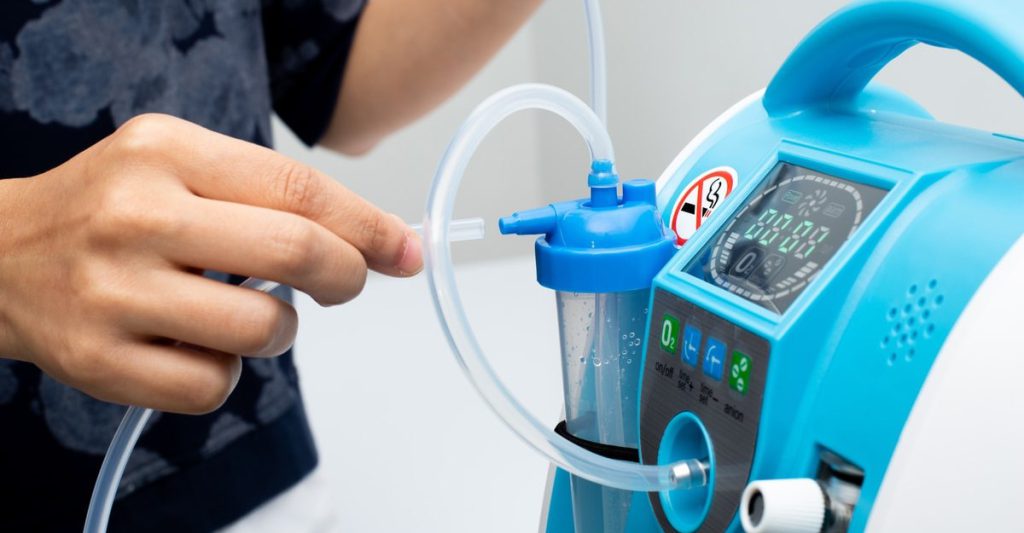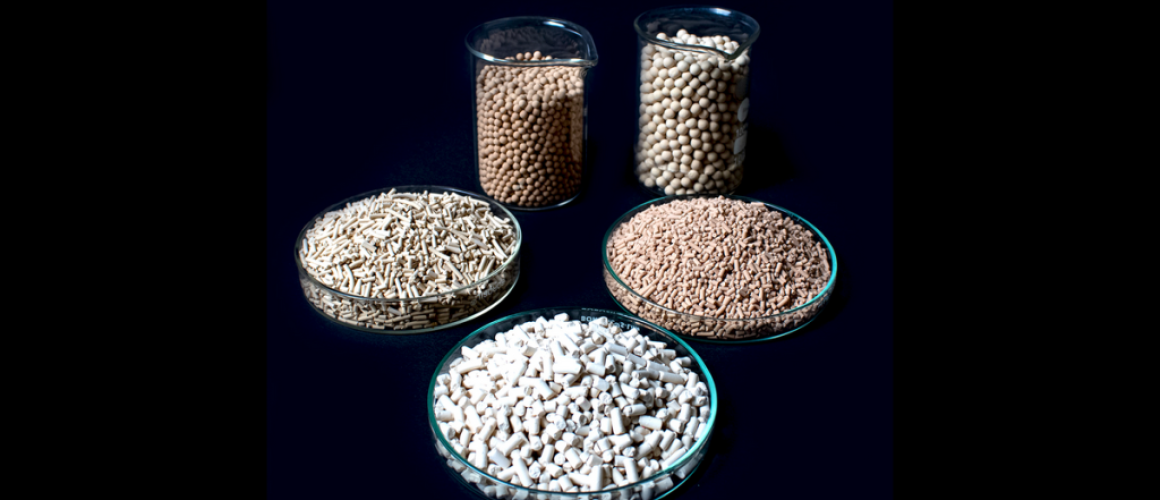Exploring the Many Uses of Molecular Sieves in Different Industries
Table of Contents
Molecular Sieves for oxygen generation
I. Introduction
Molecular sieves are a unique type of solid adsorbent material, known for their high selectivity and capacity to separate and purify gases and liquids. These advanced materials have found widespread use in a variety of industries, thanks to their exceptional properties and characteristics. In this blog post, we will delve into the fascinating world of molecular sieves, exploring their many applications across different sectors, and highlighting their essential role in a wide range of processes.
A. Definition of molecular sieves
Molecular sieves are highly porous, crystalline materials that consist of an intricate network of pores and channels. These pores are uniform in size, allowing for the selective adsorption of specific molecules while excluding others based on size and shape. The most common type is made from synthetic zeolites, which are aluminosilicate minerals with a unique three-dimensional structure.
B. Overview of their properties and characteristics
The key properties that make molecular sieves highly valuable for various industries include:
- High adsorption capacity: Molecular sieves have an incredibly high surface area, allowing them to adsorb large amounts of molecules on their surfaces.
- Selective adsorption: The uniform pore sizes enable them to selectively adsorb specific molecules while excluding others, making them highly effective for separation and purification processes.
- Regenerability: They can be regenerated and reused multiple times by heating them to release the adsorbed molecules, making them a cost-effective solution for many applications.
- Stability: They are highly stable under a wide range of temperatures and pressures, allowing them to be used in demanding industrial conditions.
C. Importance of molecular sieves in various industries
Types of molecular sieves play a crucial role in numerous industrial processes, owing to their ability to selectively adsorb and separate molecules. Their high adsorption capacity, regenerability, and stability make them an indispensable tool for industries such as petrochemicals, pharmaceuticals, air separation, food and beverage, and environmental protection. By enabling the efficient purification, separation, and preservation of products, they contribute to improving product quality, increasing process efficiency, and reducing environmental impacts.
In the following sections, we will explore the many applications of molecular sieve adsorbent in different industries, providing a comprehensive overview of their versatile and essential nature in today’s world.
We offer an extensive selection of diverse molecular sieves in our store. Visit this link to explore and buy: https://sse.co.th/product-category/molecular_sieve/

II. Molecular Sieves in the Petrochemical Industry
A. Natural gas purification
1. Removal of water and impurities
Molecular sieves play a crucial role in the purification of natural gas by effectively removing water and other impurities, such as carbon dioxide and hydrogen sulfide. The presence of these contaminants can lead to corrosion, hydrate formation, and reduced heating value, which can negatively impact the performance and efficiency of natural gas pipelines and processing plants. By selectively adsorbing these impurities, molecular sieves help to maintain the quality and integrity of the natural gas, ensuring its safe transportation and use.
2. Gas dehydration process
Gas dehydration is an essential step in the processing of natural gas, as it helps to prevent the formation of hydrates and corrosion in pipelines and equipment. Molecular sieves are widely used in this process, as they can efficiently remove water vapor from the gas stream without affecting the other components. The dehydration process involves passing the natural gas through a bed of molecular sieves, which selectively adsorb the water molecules, leaving the gas dry and ready for further processing or transportation.
B. Ethylene and propylene production
1. Drying process
Ethylene and propylene are important building blocks for a wide range of chemicals and plastics, and their production requires strict control of moisture levels to ensure high product quality and process efficiency. Molecular sieves are used in the drying process to remove trace amounts of water from the feedstocks, preventing unwanted side reactions and product degradation. By maintaining low moisture levels, molecular sieve desiccants helps to improve the yield and purity of ethylene and propylene products.
2. Purification of feedstocks
In addition to drying, they are also used for the purification of feedstocks in ethylene and propylene production. They can effectively remove various impurities, such as acetylene, carbon dioxide, and sulfur compounds, which can negatively impact product quality and catalyst performance. By selectively adsorbing these impurities, molecular sieves help to ensure that the feedstocks meet the stringent quality requirements for the production of high-value chemicals and plastics.
C. Cracked gas drying
1. Importance of moisture removal
Cracked gas is a byproduct of the cracking process, which involves breaking down heavy hydrocarbons into lighter components, such as ethylene and propylene. The presence of moisture in cracked gas can cause several issues, including equipment corrosion, catalyst poisoning, and reduced product quality. As a result, it is essential to remove moisture from the cracked gas to ensure the efficiency and longevity of the processing equipment and the quality of the final products.
2. Prevention of equipment corrosion
Molecular sieves are highly effective at removing moisture from cracked gas, preventing equipment corrosion and other moisture-related issues. By adsorbing the water molecules, molecular sieves help to maintain the integrity of the gas stream, reducing the risk of corrosion and extending the lifespan of the processing equipment. This not only helps to maintain the efficiency and productivity of the petrochemical plant but also reduces maintenance costs and downtime associated with equipment failure.
We offer an extensive selection of diverse molecular sieves in our store. Visit this link to explore and buy: https://sse.co.th/product-category/molecular_sieve/

III. Molecular Sieves in the Pharmaceutical Industry
A. Air drying and gas drying
1. Importance of dry air in pharmaceutical manufacturing
Dry air is crucial in pharmaceutical manufacturing to maintain the quality and integrity of products, as well as to ensure the efficiency and safety of the production process. Excess moisture can lead to the growth of mold, bacteria, and other contaminants, which can negatively impact product quality and pose a risk to patient health. Additionally, moisture can cause equipment corrosion and hinder the performance of sensitive instruments. Molecular sieves are commonly used in air and gas drying systems to effectively remove moisture, ensuring a clean and dry environment for pharmaceutical manufacturing.
2. Preventing contamination and product degradation
By removing moisture from the air and gas streams, molecular sieves help to prevent contamination and product degradation in pharmaceutical manufacturing. A dry environment inhibits the growth of microorganisms, reducing the risk of contamination and ensuring that products meet stringent quality and safety standards. Furthermore, by eliminating moisture, they help to prevent the degradation of active pharmaceutical ingredients and other sensitive components, ensuring the efficacy and shelf life of the final products.
B. Solvent drying
1. Removal of water and other impurities
Solvent drying is an essential step in pharmaceutical manufacturing, as trace amounts of water and other impurities can compromise the effectiveness of solvents and negatively impact product quality. Molecular sieves are highly effective at removing water and other impurities from solvents, ensuring their optimal performance in various pharmaceutical applications, such as extraction, purification, and crystallization.
2. Enhancing the efficiency of solvents
By removing moisture and impurities, molecular sieves help to enhance the efficiency of solvents in pharmaceutical manufacturing. Dry solvents can dissolve and interact with target compounds more effectively, improving the yield and purity of the final products. Moreover, dry solvents can help to prevent unwanted side reactions and product degradation, further ensuring the quality and efficacy of pharmaceutical products.
C. Tablet packaging
1. Preservation of medicine potency
Molecular sieves are often used in the packaging of pharmaceutical tablets to preserve the potency of the medicine. By adsorbing moisture within the packaging, molecular sieves help to maintain the stability and effectiveness of the active pharmaceutical ingredients, ensuring that the medicine remains potent throughout its shelf life.
2. Prevention of moisture-induced degradation
Moisture-induced degradation is a common issue in pharmaceutical packaging, as excess moisture can cause the active ingredients to break down or react with other components, compromising the quality and efficacy of the medicine. Molecular sieves help to prevent moisture-induced degradation by maintaining a dry environment within the packaging, ensuring that the pharmaceutical products remain stable and effective for their intended use.
We offer an extensive selection of diverse molecular sieves in our store. Visit this link to explore and buy: https://sse.co.th/product-category/molecular_sieve/
IV. Molecular Sieves in the Air Separation and Gas Purification Industry
A. Oxygen and nitrogen production
1. Cryogenic air separation process
Cryogenic air separation is a process used to separate oxygen, nitrogen, and other components from the air at extremely low temperatures. Molecular sieves play a vital role in this process, as they are used to remove water, carbon dioxide, and other impurities from the air before it is cooled and separated. By eliminating these contaminants, molecular sieves help to ensure the efficiency of the cryogenic air separation process and the purity of the resulting oxygen and nitrogen products.
2. Pressure swing adsorption (PSA) process
Pressure swing adsorption (PSA) is another process used to separate and produce oxygen and nitrogen from the air. In this process, air is passed through a bed of molecular sieves under pressure, which selectively adsorb nitrogen and other impurities while allowing oxygen to pass through. The pressure is then released, and the adsorbed impurities are removed, regenerating the molecular sieve bed. Molecular sieves are crucial in the PSA process, as they enable the efficient and selective separation of oxygen and nitrogen from the air. See also: The Science Behind PSA: How Pressure Swing Adsorption Powers Our Industries
B. Carbon dioxide removal
1. Importance of CO2 removal in gas processing
Carbon dioxide (CO2) removal is an essential step in gas processing, as the presence of CO2 can lead to corrosion, equipment damage, and reduced product quality. Molecular sieves are commonly used to remove CO2 from gas streams, as they can selectively adsorb CO2 while allowing other components to pass through. By effectively removing CO2, molecular sieves help to prevent corrosion, protect equipment, and ensure the quality of the final gas products.
2. Enhancing gas purity
Molecular sieves play a vital role in enhancing the purity of various gas products by removing CO2 and other impurities. High-purity gases are essential for many applications, including chemical processing, electronics manufacturing, and medical applications. By effectively removing CO2 and other contaminants, molecular sieves help to ensure the quality and purity of these critical gas products.
C. Hydrogen purification
1. Hydrogen production processes
Hydrogen is produced through various processes, including steam methane reforming, electrolysis, and gasification. Regardless of the production method, hydrogen purification is essential, as impurities can compromise the performance and efficiency of hydrogen fuel cells and other hydrogen-based technologies. Molecular sieves are often used in hydrogen purification processes, as they can selectively adsorb impurities such as CO2, water, and hydrocarbons, while allowing hydrogen to pass through.
2. Applications of pure hydrogen in various industries
Pure hydrogen is used in a wide range of industries, including chemical processing, electronics manufacturing, and clean energy applications. In these industries, the purity of hydrogen is crucial for ensuring the efficiency and performance of various processes and technologies. Molecular sieves play a critical role in achieving the required purity levels for hydrogen, enabling its use in various applications and contributing to the advancement of hydrogen-based technologies.
We offer an extensive selection of diverse molecular sieves in our store. Visit this link to explore and buy: https://sse.co.th/product-category/molecular_sieve/
V. Molecular Sieves in the Food and Beverage Industry
A. Dehydration of edible oils
1. Importance of oil dehydration in food processing
Dehydration of edible oils is a crucial step in food processing, as the presence of water can promote oxidation, spoilage, and off-flavors. Molecular sieves are commonly used in the dehydration process, as they can efficiently adsorb water and other impurities from edible oils. By removing water from oils, molecular sieves help to prevent oxidation and spoilage, ensuring the quality and safety of food products.
2. Enhancing oil quality and shelf life
The use of molecular sieves in edible oil dehydration not only helps to maintain the quality of the oil but also extends its shelf life. By removing water and other impurities, molecular sieves help to reduce the risk of oxidation, rancidity, and spoilage, all of which can compromise the taste and quality of the oil. As a result, molecular sieves play a vital role in enhancing the overall quality and shelf life of edible oils, contributing to a better food product for consumers.
B. Beer and wine stabilization
1. Removal of undesirable compounds
Molecular sieves are used in the beer and wine stabilization process to remove undesirable compounds, such as water, volatile acids, and sulfur compounds. These compounds can negatively affect the taste, aroma, and overall quality of the final product. By selectively adsorbing these undesirable compounds, molecular sieves help to improve the stability and quality of beer and wine, ensuring a better experience for consumers.
2. Improvement of taste and quality
By removing undesirable compounds from beer and wine, molecular sieves play a critical role in enhancing the overall taste and quality of these beverages. This helps to prevent off-flavors, unpleasant aromas, and other quality issues that can compromise the consumer’s enjoyment of the product. As a result, molecular sieves contribute to the production of high-quality beer and wine that meets consumer expectations and industry standards.
C. Food packaging
1. Prevention of spoilage and contamination
Molecular sieves are often used in food packaging applications to help prevent spoilage and contamination. They can be incorporated into packaging materials to adsorb moisture, oxygen, and other substances that can promote the growth of bacteria, mold, and other spoilage-causing agents. By controlling the environment within the package, molecular sieves help to preserve the freshness, quality, and safety of food products.
2. Extension of shelf life
The use of molecular sieves in food packaging also helps to extend the shelf life of various food products. By effectively removing moisture, oxygen, and other contaminants, molecular sieves help to create an optimal environment within the package that slows down the degradation and spoilage processes. This helps to maintain the quality, taste, and appearance of food products, allowing them to stay fresh and appealing for longer periods.
We offer an extensive selection of diverse molecular sieves in our store. Visit this link to explore and buy: https://sse.co.th/product-category/molecular_sieve/

VI. Molecular Sieves in the Health Care Sector
A. Oxygen generation
1. Medical-grade oxygen production
Molecular sieves play a crucial role in the health care sector, particularly in the generation of medical-grade oxygen. Oxygen is an essential medical gas, required in various medical treatments and procedures such as surgery, intensive care, and respiratory therapy. Molecular sieves are used to produce high-purity oxygen from ambient air through a process called pressure swing adsorption (PSA).
2. Pressure swing adsorption (PSA) process
The PSA process involves passing compressed air through a column filled with molecular sieves, which selectively adsorb nitrogen and other impurities while allowing oxygen to pass through. The resulting oxygen stream is then collected and used for medical applications. This process is highly efficient and cost-effective, making it a popular method for producing medical-grade oxygen.
3. Benefits of on-site oxygen generation for hospitals and clinics
One significant advantage of molecular sieves in oxygen generation is the ability to produce oxygen on-site at hospitals and clinics. This eliminates the need for transporting and storing oxygen cylinders, reducing costs and improving the reliability of the oxygen supply. Furthermore, on-site oxygen generation systems can be scaled to meet the specific needs of the facility, ensuring a consistent supply of medical-grade oxygen.
B. Respiratory care devices
1. Oxygen concentrators for home use
Molecular sieves are also used in oxygen concentrators, which are portable devices that provide oxygen therapy to patients with respiratory conditions such as chronic obstructive pulmonary disease (COPD) and asthma. These devices use molecular sieves to separate oxygen from ambient air, providing a concentrated supply of oxygen to the patient. Oxygen concentrators are more convenient and cost-effective than traditional oxygen tanks, enabling patients to receive oxygen therapy at home or on the go.
2. Improvement of patient comfort and mobility
The use of molecular sieves in respiratory care devices has significantly improved patient comfort and mobility. By eliminating the need for heavy oxygen tanks and enabling portable oxygen therapy, patients can enjoy a better quality of life and participate in daily activities with greater ease. The ongoing development of molecular sieve technology in the health care sector promises to continue enhancing the lives of those who rely on oxygen therapy.
Molecular Sieve for oxygen generation in our shop: https://sse.co.th/product-category/molecular-sieve-oxygen-generator/
VII. Molecular Sieves in the Environmental Industry
A. Air and water pollution control
1. Adsorption of hazardous chemicals and pollutants
Molecular sieves are highly effective in the adsorption of hazardous chemicals and pollutants from air and water, making them a valuable tool in pollution control efforts. Their highly porous structure and large surface area allow them to selectively capture and retain a wide range of contaminants, such as volatile organic compounds (VOCs), heavy metals, and toxic gases. By effectively removing these pollutants, molecular sieves contribute to cleaner air and water, promoting a healthier environment.
2. Environmental remediation processes
Molecular sieves play a crucial role in various environmental remediation processes, where they are used to remove contaminants from soil, groundwater, and other environmental media. Their high adsorption capacity and selectivity enable them to target and capture specific contaminants, facilitating their removal and treatment. This helps to restore contaminated sites to their original state, promoting environmental sustainability and reducing the risks associated with pollution.
B. Greenhouse gas capture
1. Carbon capture and storage (CCS) technology
One of the most promising applications of molecular sieves in the environmental industry is in carbon capture and storage (CCS) technology. Molecular sieves can effectively adsorb carbon dioxide (CO2) and other greenhouse gases from industrial emissions, preventing them from being released into the atmosphere. The captured CO2 can then be stored or utilized in various ways, such as enhanced oil recovery or conversion into valuable products. By facilitating the capture and storage of greenhouse gases, molecular sieves play a crucial role in mitigating climate change.
2. Mitigation of climate change
The use of molecular sieves in greenhouse gas capture and storage technologies is a significant step in mitigating the impacts of climate change. By effectively capturing and storing CO2 and other greenhouse gases, molecular sieves help to reduce the overall emissions of these gases.
C. Waste treatment and disposal
1. Stabilization and solidification of hazardous waste
Molecular sieves are used in the stabilization and solidification of hazardous waste, where they help to immobilize and encapsulate contaminants, rendering them less harmful to the environment. Their high adsorption capacity allows them to capture and retain a wide range of pollutants, preventing their migration and release into the environment. This contributes to the safe and effective management of hazardous waste, reducing the associated environmental risks.
2. Reduction of environmental risks
By facilitating the stabilization and solidification of hazardous waste, they play a crucial role in reducing the environmental risks associated with waste disposal. Their ability to capture and retain contaminants helps to prevent the release of hazardous substances into the environment, minimizing the potential for pollution and contamination. This promotes a cleaner, safer environment and contributes to the overall goal of environmental sustainability.
We offer an extensive selection of diverse molecular sieves in our store. Visit this link to explore and buy: https://sse.co.th/product-category/molecular_sieve/
VIII. Other Applications of Molecular Sieves
A. Automotive industry
1. Fuel purification
Molecular sieves are utilized in the automotive industry for fuel purification purposes. They can effectively remove water, sulfur compounds, and other impurities from gasoline, diesel, and biodiesel fuels, ensuring optimal performance and reduced emissions. By promoting cleaner combustion and minimizing the formation of harmful byproducts, they contribute to more efficient and environmentally friendly vehicles.
2. Emission control systems
In addition to fuel purification, molecular sieves are also employed in automotive emission control systems. They can effectively adsorb and retain various pollutants, such as nitrogen oxides, hydrocarbons, and carbon monoxide, reducing their release into the environment. This helps to meet stringent emission regulations and protect air quality, promoting a cleaner and healthier environment.
B. Electronics industry
1. Moisture control in electronic devices
Moisture can be detrimental to the performance and lifespan of electronic devices, leading to corrosion, short circuits, and other issues. Molecular sieves are used in the electronics industry to control moisture levels and protect sensitive components from damage. Their high adsorption capacity and selectivity enable them to effectively capture and retain water molecules, maintaining a dry environment within electronic devices and ensuring their optimal functioning.
2. Protection of sensitive components
Molecular sieves are also utilized in the electronics industry to protect sensitive components from various contaminants, such as gases, chemicals, and particulates. By effectively adsorbing and retaining these contaminants, they help to maintain the purity and integrity of electronic devices, ensuring their long-term performance and reliability.
C. Energy storage and conversion
1. Hydrogen storage materials
One of the emerging applications of molecular sieves is in the field of energy storage, particularly hydrogen storage. Molecular sieves, especially metal-organic frameworks (MOFs), have shown great potential as hydrogen storage materials, thanks to their high surface area and tunable pore structures. By adsorbing and retaining hydrogen molecules, they can facilitate the storage and transportation of hydrogen, supporting the development of a hydrogen-based energy economy.
2. Fuel cell technologies
Molecular sieves are also employed in fuel cell technologies, where they can effectively purify the input gases, such as hydrogen and oxygen, and remove impurities that can degrade the performance of fuel cells. Moreover, molecular sieves can be used to control moisture levels within fuel cells, ensuring optimal operation and preventing issues related to flooding or drying. By enhancing the performance and durability of fuel cells, they contribute to the advancement of clean and sustainable energy solutions.
We offer an extensive selection of diverse molecular sieves in our store. Visit this link to explore and buy: https://sse.co.th/product-category/molecular_sieve/
IX. Conclusion
A. Summary of molecular sieves’ versatility and importance
Throughout this article, we have explored the many uses and applications of molecular sieves across various industries, including petrochemical, pharmaceutical, air separation and gas purification, food and beverage, environmental, automotive, electronics, and energy storage and conversion. The versatility and importance of molecular sieves cannot be overstated, as they play a critical role in enhancing product quality, protecting sensitive equipment, preserving the environment, and supporting the development of clean and sustainable energy solutions.
B. Future developments and potential new applications
As research and innovation continue to advance, it is highly likely that new applications and uses for molecular sieves will emerge. Novel materials, such as metal-organic frameworks and covalent organic frameworks, are opening up new possibilities for molecular sieve technology, offering improved performance and tailored properties for specific applications. Additionally, the increasing global focus on sustainability and environmental protection is likely to drive further demand for molecular sieves in areas such as pollution control, carbon capture, and renewable energy.
C. Importance of continued research and innovation in molecular sieve technology
The potential of molecular sieves is immense, and continued research and innovation in this field are essential to unlock their full capabilities. By developing new materials, optimizing adsorption processes, and exploring novel applications, scientists and engineers can contribute to the advancement of molecular sieve technology and its broader impact on society. Ultimately, the ongoing development of molecular sieves promises to improve the efficiency and sustainability of various industries, support a cleaner and healthier environment, and enhance the quality of life for people around the world.
We offer an extensive selection of diverse molecular sieves in our store. Visit this link to explore and buy: https://sse.co.th/product-category/molecular_sieve/
Zeolite Molecular Sieve: การเลือกซีโอไลต์โมเลกุลซีฟที่เหมาะสมสำหรับเครื่องกำเนิดออกซิเจนของคุณ
The Benefits of Using Molecular Sieves in Gas Drying Applications
Your Comprehensive Guide to Molecular Sieves
Molecular sieve | chemistry | Britannica.
